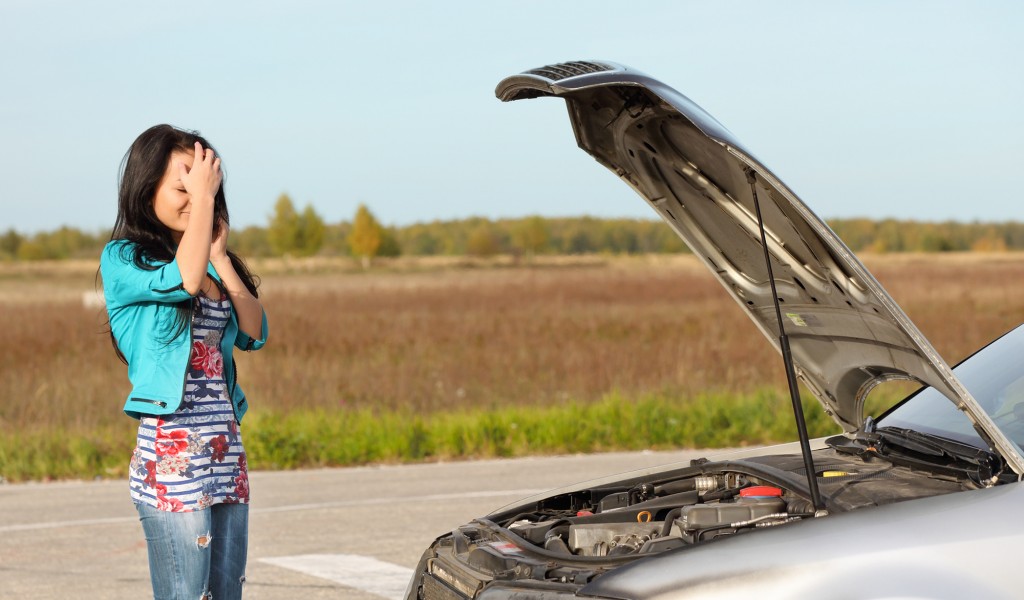Do you care for your car more than your health?
I have promised myself that next year I will buy myself a new car. The one which I have is 12 years old, and this year alone it has cost me £600+ to keep it on the road – realistically more than it is worth.
I have had it for a long time, but still remember how well I looked after it when I first bought it. I was super careful not to scratch it, spent time each week washing and polishing it, filled it with quality fuel, and got it serviced regularly.
If I am honest, I will admit that I don’t take care of it as well as I used to, and I am no longer the proud owner which I once was.
In fact, I can’t wait to trade it in for a newer model!
The whole process has made me think about how we treat our body, and whether in fact most of us pay more attention to our car than we do to the amazing machine which we live in!
Worse still, our body is not like a car – we can’t just scrap it or trade it in for something else when the problems start.
I am reminded of the Jim Rohn quote, ‘Take care of your body. It’s the only place you have to live.’
A car needs many things in order to drive optimally and be reliable in the long term.
1. Scheduled service – I would bet that if you owned a Ferrari, you wouldn’t take it to be serviced at the local backstreet garage. You would seek out and build a relationship with a reputable dealer who you felt certain would treat your car with the utmost care……and you would be prepared to pay handsomely for this. Your body is, or perhaps was, a Ferrari, and deserves the same love!
Similarly, with a new car, most of us try to follow the servicing guidelines, and ensure that expected jobs and routine tasks are completed when they should be. We know that a car with a full service history is likely to be worth more than one without, as it should be more reliable and hopefully not break down.
Our bodies come with their own service history, be it one of vitality, movement and good health, or inactivity, illness and decline. We all have the power to take back that control, and write some new entries.
2. Quality fuel – I remember the days when it was possible to buy a much wider range of grades of fuel (2-star, 4-star etc.) and even now some manufacturers produce a more expensive ‘ultimate’ fuel. Equally, if your car is designed to run on diesel, you had better not try putting petrol in the talk (believe me, I did this once and it wasn’t good!).
Cars are designed with fuel and air filters to ensure that what is going into the engine to generate the power is as clean as possible, and those truly interested in maximising the performance of a car get it ‘tuned’ to make it go faster.
Do you treat your body with the same respect?
You can’t expect it to run well and give you great performance if you regularly eat poor quality food, items which don’t truly give your body the nutrients which it needs, or consume things which poison your body from the inside.
3. Regular driving – Leave your car in your garage for months at a time and all sorts of problems are likely to occur. The battery will go flat, the fuel will settle and condensate, oil will sink to the bottom of the sump leaving the internal workings exposed, damp will cause corrosion, and the brakes will stick on. When you come to drive it again, it probably won’t start you may well have a selection of problems to overcome.
Similarly, it is not good for the mechanics of a car if it only ever makes very short journeys, as it never truly warms up, and residues tend to build up in the fuel and combustion system. A car needs to get up to operating temperature, before things run smoothly and as they should.
It is the same with our human body. It needs regular activity, at a sustainable intensity and duration (minimum 30 minutes of moderate intensity exercise, 5* week according to the guidelines) if we are to maintain our quality of life and minimise the risk of illness and disease.
If our car needs to be well looked after so we can rely on it, then surely we must make a similar investment in our own health?
As a personal trainer, I see our human body as the most remarkable of machines. It is generally capable of putting up with many years of poor treatment, sub-optimal nutrition and lack of movement, before things start to go wrong.
We ignore the symptoms or ‘messages’ which our body sends us, such as regular pain, symptoms requiring medications or an expanding waistline, and somehow believe that we can just keep going like we are without there being any consequences.
It seems ironic that most of us will accept that if we don’t look after our car, then sooner or later it will start to have problems, and yet when it comes to our own body, we chose to believe that years of neglect and poor treatment won’t matter.
Having to play a damsel in distress when your car breaks down is one thing, but suffering from a long-term illness or disease is generally not so easily fixed.
You can’t buy your health back once it is lost!
Even if we don’t do the clearly harmful things like smoke, drink alcohol to excess, get overweight or be completely sedentary, then most of us still do things which are not optimal for our long-term health and well-being.
We certainly don’t have to be fanatical about our lifestyle, but we do need to be mindful about minimising the damage so we can function as well as we can for as long as possible.
The question simply becomes, will you wait until something goes wrong with your health before you take action, or will you take an honest look at the state of your ‘vehicle’ now and get started with some preventative maintenance?
Whatever you need to do, such as move more, make better nutritional choices, or get expert guidance, I would suggest that there is no time like now to make the first move. Your issues won’t go away on their own, and will likely get worse.
It shouldn’t take a health disaster to make us re-evaluate what is truly important – or what we are prepared to do (or not do) in order to stay alive!








